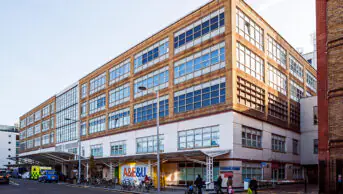
Shutterstock.com
Pharmacists carrying out early medicines reconciliation for patients admitted to hospital significantly reduce discrepancies in their medication and may even reduce their length of hospital stay and readmission, results of a pilot study suggest.
According to the National Institute for Health and Care Excellence, the health technology assessment body, medicine reconciliation is recommended to be undertaken within 24 hours of admission to hospital but the evidence base for this or even what happens in practice is not clear, say researchers.
In the first UK randomised controlled trial of a medicines reconciliation service versus usual care, researchers at Cambridge University Hospitals NHS Foundation Trust and the University of East Anglia found that in the intervention group, 98% (250 out of 255) of medicine discrepancies were resolved by the 45-minute reviews during admission.
Five pharmacists were responsible for carrying out the reviews which involved looking into any differences between patient records with no identifiable reason. They were also responsible for following up on any inconsistencies they found.
This was compared with the approach usually taken in the hospital, which the final analysis showed did involve some medicines reconciliation but not for everyone and not as thorough, the researchers report in BMJ Open
[1]
(online, 16 March 2017).
Over a nine-month period looking at 200 patients, the researchers found that in the intervention group, 99% of patients were seen within 24 hours and the vast majority of problems identified were resolved.
By contrast, in the control group, 60.8% of patients received medicines reconciliation at some point during admission, with an average 15-minute consultation.
At the point of discharge there were 268 unintentional medicine discrepancies in the usual care group compared with only two in the intervention group.
The researchers note that the UK government recommends that all patients receive medicines reconciliation from a member of the pharmacy team within 24 hours of hospital admission to ensure accurate transfer of information about medication between the different care settings.
Brit Cadman, study leader from the pharmacy department at Cambridge University Hospitals, said the research suggests that “while significant resources are required to undertake thorough medicines reconciliations this may be justified by cost savings realised through reduced length of stay and re-hospitalisation”.

Source: Courtesy David Wright
Co-author David Wright, University of East Anglia school of pharmacy, says the aim of the study was to see if a randomised trial could be done in a hospital where the service was already being provided
Co-author David Wright, from UEA’s school of pharmacy, says the aim of the study was to determine whether a randomised trial could be done in a hospital where the service was already being provided.
Further research now needs to be done to test if the approach is cost effective, the team says.
A spokesperson for the Royal Pharmaceutical Society says it “would support resource being invested in the pharmacy profession to improve patient care and reduce costs via reducing hospital readmissions and reducing length of stay”.
The spokesperson also points out that medicines reconciliation on discharge is a critical factor and that the schemes that enable clinical handover between hospital and community pharmacy can play a significant role in reducing readmissions.
References
[1] Cadman B, Wright D, Bale A et al. Pharmacist-provided medicines reconciliation within 24 hours of admission and on discharge: a randomised controlled pilot study. BMJ Open 2017; 7:e013647. doi: 10.1136/bmjopen-2016-013647


